第27章 FIVE The Mistake of the Machine(1)
FLAMBEAU and his friend the priest were sitting in the Temple Gardens about sunset; and their neighbourhood or some such accidental influence had turned their talk to matters of legal process. From the problem of the licence in cross-examination, their talk strayed to Roman and mediaeval torture, to the examining magistrate in France and the Third Degree in America.
"I've been reading," said Flambeau, "of this new psychometric method they talk about so much, especially in America. You know what I mean; they put a pulsometer on a man's wrist and judge by how his heart goes at the pronunciation of certain words. What do you think of it?"
"I think it very interesting," replied Father Brown;"it reminds me of that interesting idea in the Dark Ages that blood would flow from a corpse if the murderer touched it."
"Do you really mean," demanded his friend, "that you think the two methods equally valuable?"
"I think them equally valueless," replied Brown. "Blood flows, fast or slow, in dead folk or living, for so many more million reasons than we can ever know. Blood will have to flow very funnily; blood will have to flow up the Matterhorn, before I will take it as a sign that I am to shed it."
"The method," remarked the other, "has been guaranteed by some of the greatest American men of science."
"What sentimentalists men of science are!" exclaimed Father Brown, "and how much more sentimental must American men of science be!
Who but a Yankee would think of proving anything from heart-throbs?
Why, they must be as sentimental as a man who thinks a woman is in love with him if she blushes. That's a test from the circulation of the blood, discovered by the immortal Harvey; and a jolly rotten test, too."
"But surely," insisted Flambeau, "it might point pretty straight at something or other."
"There's a disadvantage in a stick pointing straight," answered the other. "What is it? Why, the other end of the stick always points the opposite way. It depends whether you get hold of the stick by the right end. I saw the thing done once and I've never believed in it since." And he proceeded to tell the story of his disillusionment.
It happened nearly twenty years before, when he was chaplain to his co-religionists in a prison in Chicago--where the Irish population displayed a capacity both for crime and penitence which kept him tolerably busy. The official second-in-command under the Governor was an ex-detective named Greywood Usher, a cadaverous, careful-spoken Yankee philosopher, occasionally varying a very rigid visage with an odd apologetic grimace. He liked Father Brown in a slightly patronizing way; and Father Brown liked him, though he heartily disliked his theories. His theories were extremely complicated and were held with extreme simplicity.
One evening he had sent for the priest, who, according to his custom, took a seat in silence at a table piled and littered with papers, and waited. The official selected from the papers a scrap of newspaper cutting, which he handed across to the cleric, who read it gravely. It appeared to be an extract from one of the pinkest of American Society papers, and ran as follows:
"Society's brightest widower is once more on the Freak Dinner stunt.
All our exclusive citizens will recall the Perambulator Parade Dinner, in which Last-Trick Todd, at his palatial home at Pilgrim's Pond, caused so many of our prominent debutantes to look even younger than their years. Equally elegant and more miscellaneous and large-hearted in social outlook was Last-Trick's show the year previous, the popular Cannibal Crush Lunch, at which the confections handed round were sarcastically moulded in the forms of human arms and legs, and during which more than one of our gayest mental gymnasts was heard offering to eat his partner. The witticism which will inspire this evening is as yet in Mr Todd's pretty reticent intellect, or locked in the jewelled bosoms of our city's gayest leaders; but there is talk of a pretty parody of the simple manners and customs at the other end of Society's scale. This would be all the more telling, as hospitable Todd is entertaining in Lord Falconroy, the famous traveller, a true-blooded aristocrat fresh from England's oak-groves.
Lord Falconroy's travels began before his ancient feudal title was resurrected, he was in the Republic in his youth, and fashion murmurs a sly reason for his return. Miss Etta Todd is one of our deep-souled New Yorkers, and comes into an income of nearly twelve hundred million dollars."
"Well," asked Usher, "does that interest you?"
"Why, words rather fail me," answered Father Brown.
"I cannot think at this moment of anything in this world that would interest me less. And, unless the just anger of the Republic is at last going to electrocute journalists for writing like that, I don't quite see why it should interest you either."
"Ah!" said Mr Usher dryly, and handing across another scrap of newspaper. "Well, does that interest you?"
The paragraph was headed "Savage Murder of a Warder.